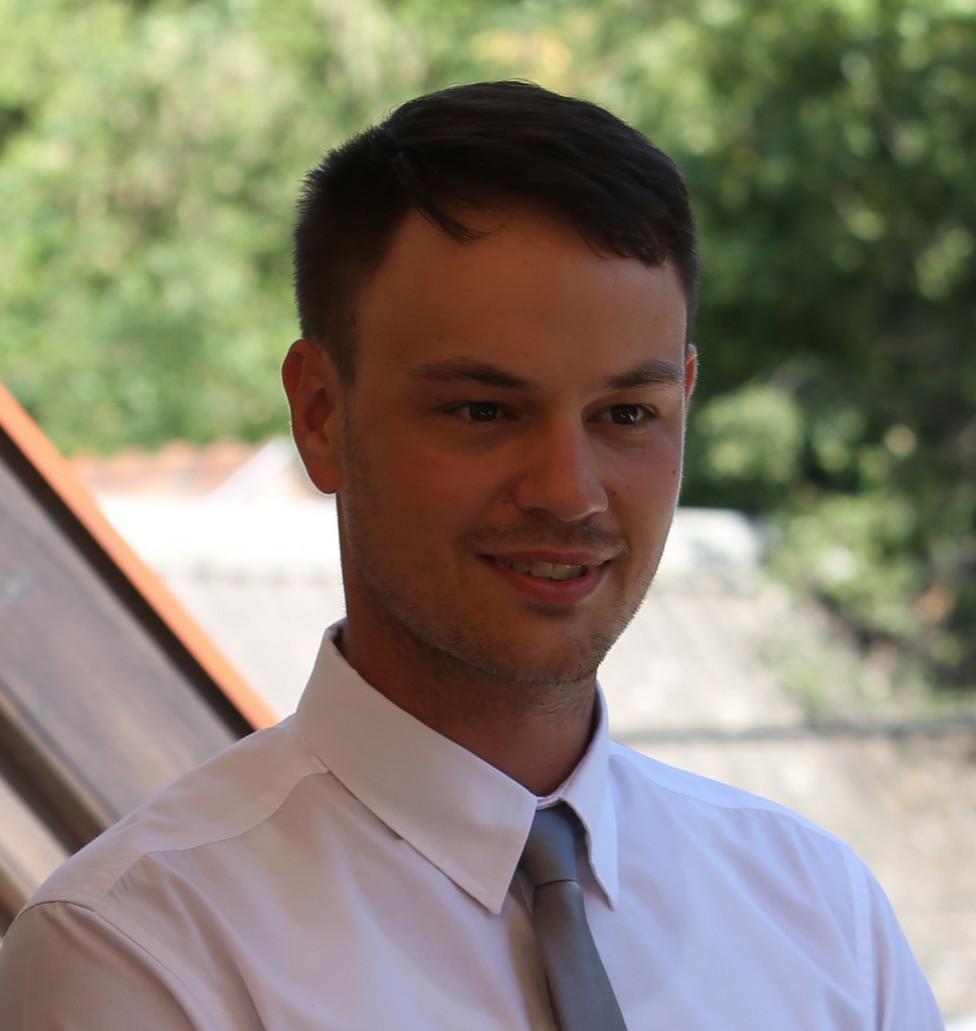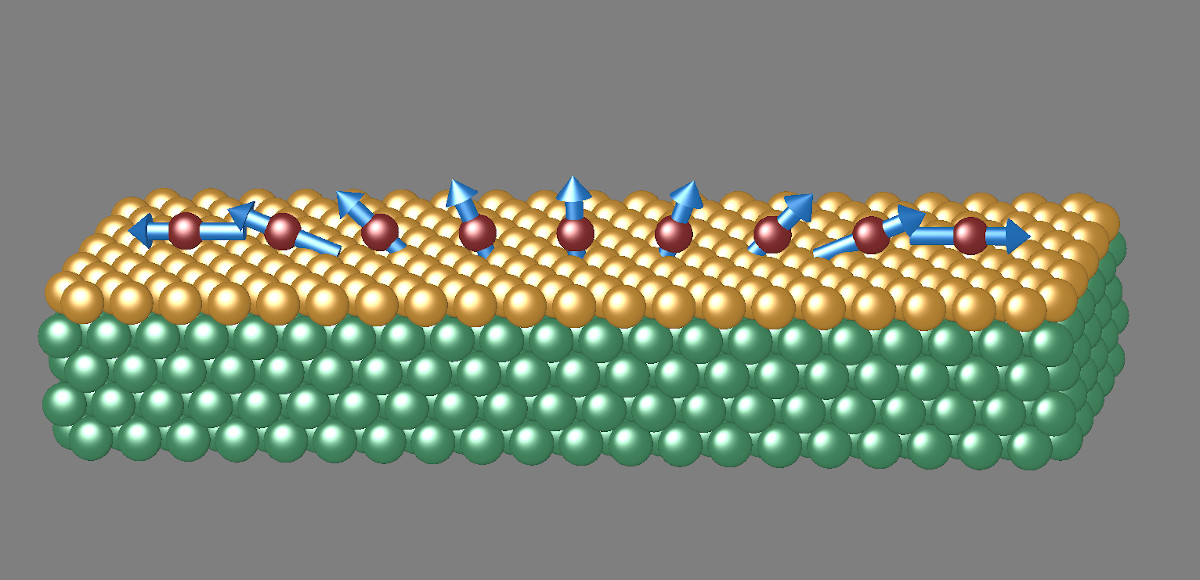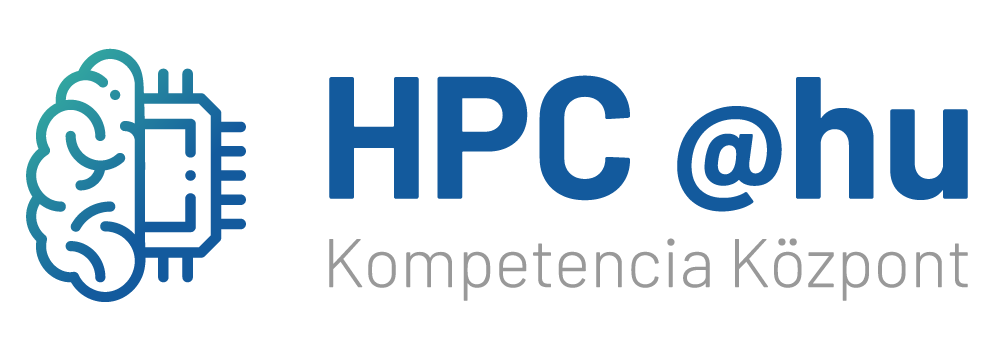"We cannot live without supercomputers" - interview with Bendegúz Tamás Nyári, HPC scholarship PhD student

"We cannot live without supercomputers" - interview with Bendegúz Tamás Nyári, HPC scholarship PhD student
How would you introduce yourself, what is your research area?
I am a doctoral student at the Department of Theoretical Physics at the BME Faculty of Science, and I will write my dissertation in the coming year. Within theoretical physics, I deal with the ab initio simulation of the electronic structure of solids. This is the collective name of methods with which, as the Latin name shows, it is possible to carry out simulations from the beginning, based on physical principles. Of course, the methods themselves are quite complicated and complex, but they give us the opportunity to perform material-specific simulations. In the framework of my application, I investigated the quantum states of magnetic atomic structures artificially formed on the surface of various superconducting-metal heterostructures.
What is the purpose of this research?
Investigating and understanding exciting physical phenomena that may be relevant to information technology and may one day form the basis of the tools of the future. On the basis of the above, it is even possible to formulate a proposal as to what could be the materials that can best be used for specific purposes. An example for this is the examination of the surface of the superconducting niobium, in the case of different cover layers and surface magnetic impurities, where our goal is to find combinations in which the formation of the so-called Majorana states is possible. Because if it were possible to find materials in which these Majorana states appear, then they would provide an opportunity to create a new quantum bit that works with a much smaller error.

How are these results used?
We conduct basic research, but later, of course, there will be industrial applications of these calculations, only in a larger context, in this case in the form of a quantum computer based on Majorana states. In the short term, however, the main joy and motivation is the understanding of the observed physical phenomena and the acquisition of the knowledge that can be obtained in this way.
When did you first encounter supercomputing?
I wrote my BSc thesis and MSc thesis in the same research group, where I am currently doing my doctorate. In the beginning, I did theoretical calculations on paper, which gave rise to my BSc thesis. After that, the obtained results had to be tested and implemented, and that's when I performed specific calculations for the first time, for which I used the department's small computer cluster. Then, for my master's degree, I already carried out an examination of a specific family of materials, which were more resource-intensive calculations and exceeded the capacity of a desktop computer.
Was HPC not part of your studies before?
Supercomputing was not a subject at the university. Here at the BME, it is certainly not taught, at least not in physics education, although in my opinion it would be necessary. Currently, the practice is that those who need it, learn it in a self-taught way, with the help of the Internet or their colleagues.
What is the role of HPC in your field?
My field of expertise, in the narrow sense, could hardly exist without a supercomputer. We have program codes that require much more resources compared to a PC, a typical calculation can use up to 100 processor cores. We cannot live without supercomputers, even if there were an alternative, it would require a completely different methodology.
Where did you find out about the Competence Centre’s scholarship application?
Our group already had a KIFÜ project, to be more precise, it is still running. I also made calculations in that, so I was already a user, and that's how I receive the KIFÜ newsletter. But it was also featured in the BME's internal newsletter.
What project did you apply for?
With an already running project. I had already had previous results, so everything was prepared, but the infrastructural possibilities were lacking. I had everything, I had what needed to be calculated, I had the program codes, all I needed was computer time. When I read the description, I immediately saw that it completely fitted my profile. I can briefly summarize that my application included calculations regarding the quantum bits that form the basis of the quantum computer, as well as the research necessary for various quantum bit implementations. I hope that my results will appear one day in different hardware as well.
Will you be able to reach your goal?
This is a difficult question because there are so many results. But it is common in research that as we move forward, more and more opportunities open up, new ideas come. All in all, I can say that I have achieved most of the goals I set in February, but seeing the results, I can continue in a lot of new directions.
Do you plan on continuing?
Yes, I definitely plan to take it further because there is so much more to be done. I can't really see this project as a complete work. For me, it is more of an ongoing thing, of which this application was a milestone, building on which it is possible to move forward in new, exciting directions.
What was it like to use the KIFÜ supercomputer?
My task was to transfer and configure the codes already working elsewhere, in this my mentor, Imre Szeberényi also helped a lot. With minor difficulties, but we managed to get everything working in a short time.
How challenging do you find using a supercomputer?
It can be learned quickly at the user level if you have the basics of programming and computer technology. The primary challenge is that nowadays everyone uses graphical interfaces, so if you get a terminal, it freezes, and it's hard to "do whatever with it". On the other hand, those who feel at home in the Linux terminal will quickly understand the operation of HPC and can get by quickly. All this can be learned on a desktop computer as well. Another novelty in an HPC environment is the use of the scheduler, you really only come across this on HPC, but I think there are excellent tutorials for this as well, where the basics can be learned in a few hours. Problems come when something might not work. When you have to go deeper into things, it can be a challenge. But if there is a well-functioning program code that is installed, it is quick and easy for the user to manage HPC.
What does it take to be an effective supercomputer user?
In higher education, the computer is relegated to the background, or at least the courses follow the development in the field of computer technology very slowly. Very little programming is taught, or was taught when I did my BSc. However, in order for one to be able to use a supercomputer effectively, efficient codes are needed first. Having said that, the user is already working with ready-made codes most of the time, so the most important thing is to know the program in hand and know how it works, how to make the best use of the available resources.
Who would you recommend the supercomputer to?
I think there are plenty of opportunities in engineering as well, we could open towards that. For example, the computational demand of flow simulations is enormous. The same applies to industry, car manufacturers and machine manufacturers must use their own supercomputers for simulations. The bottleneck in their case is software licenses. Many scientific fields have their own licensed program codes, without which they cannot exist, but at the same time, these licenses also have serious financial implications. We work with a program package developed in-house, which is quite diverse and we can deal with a lot of topics.
Does this diversity also apply to your research project?
Yes. On the one hand, we also develop, on the other hand, we see the direction in which science is going, and we follow it as well. My supervisor, László Szunyogh and his colleagues started researching this area in the early 1990s, almost 30 years ago. It was then that the program package used today began to be developed, and since then hundreds of technical articles have been created using these codes.
How do you see the future of supercomputing?
They hand over a lot of machines, this is a very seriously developing sector, which has been available to us for a relatively long time. More computing options, more processors, and larger memory result in larger systems and increase complexity. In general, it is clear that the world is moving towards big data, which is designed for these huge machines. Closely related to this is artificial intelligence, which can do amazing things with good algorithms from large data sets and is appearing in more and more fields. These applications trickle down to the level of ordinary people, appearing as exciting products and services in everyday life. For example, a self-driving car, or various personalized advertisements, or anything that is based on using artificial intelligence to predict our behaviour and decisions based on the data collected about us.
What do you think about the quantum computer?
We are conducting basic research in this direction, but the end product is a distant mystery to us as well. Calculations on different quantum mechanical systems can be much faster on a well-functioning and suitably sized quantum computer. However, this is still the future, at the moment only very few, and in reality, not very practical algorithms have been able to show with the current tools the superiority of the quantum. In order to obtain a tool that can also be applied to real physical problems, a lot of research is still needed. The biggest concern is that the encryption used in all digital communications will be cracked in seconds once it is created. The other problem is that classical computers and quantum computers often work almost as complements to each other, what is fast on one is slow on the other, and vice versa. Researchers are working intensively to invent encryption algorithms that are difficult to crack with both.
Can this be solved?
Probably yes. These are mathematical problem areas, mathematicians are used to investigating what is possible. I think it can be solved, otherwise the warning bells would be ringing and they wouldn't talk about the fact that research is going on in this field as well. Quantum informatics itself is a separate field of research, to find problems and develop algorithms that can be easily calculated and simulated on such hardware. However, the quantum computer is still far away, and we don't really know exactly what it will be good for and when. In fact, we are currently at the point where a lot of HPC simulations are needed to build a quantum computer. But this is still the distant future, we have now entered the era of HPC.

